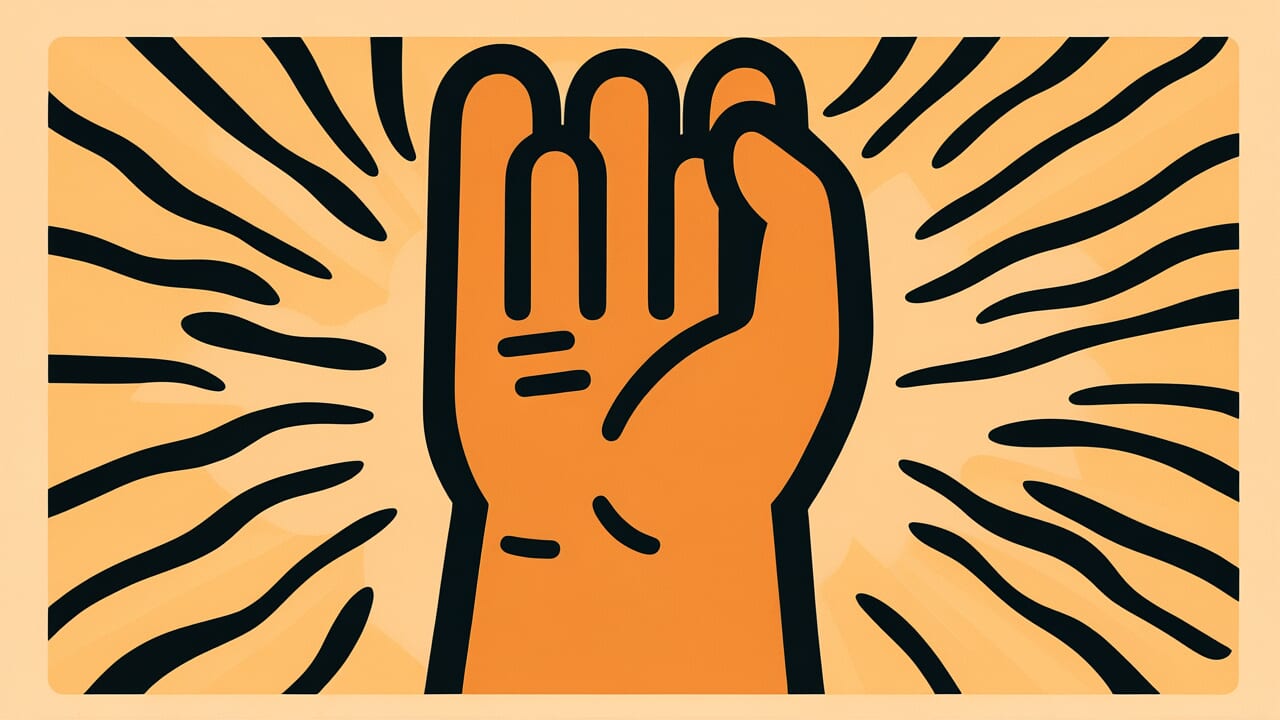How to Read “Sixty hands”
terokujū
Meaning of “Sixty hands”
“Sixty hands” teaches that intellectual skills like arithmetic improve quickly when you’re young. But skills using your hands, like calligraphy or crafts, take many years to truly master.
This proverb shows that learning and skills have two different natures. Mental abilities like calculation and memorization develop efficiently during youth when the mind is flexible.
On the other hand, physical and spiritual skills take much longer. The movement of a brush, the feeling in your hands, the depth you put into your work—these only become genuine through years of experience.
People use this expression to teach the importance of patiently continuing to polish your skills. Just because you don’t see results while young doesn’t mean you should give up.
Some fields gain value precisely because they take time. Even today, this truth lives on in the worlds of craftsmanship and art.
In an age that demands instant results, this proverb reminds us of the value of slow maturation.
Origin and Etymology
No clear written records explain the origin of “Sixty hands.” However, we can make interesting observations from how the phrase is constructed.
“Hands” refers to skills using your hands, like calligraphy or crafts. “Sixty” represents age.
When combined, these words express that hand skills only reach true mastery at age sixty.
The background of this phrase likely lies in Edo period craftsman culture and the world of artistic disciplines. In that era, skills like calligraphy, painting, and pottery weren’t just techniques.
They were seen as “paths” to pursue throughout one’s life. By contrasting them with intellectual skills like arithmetic that you can learn young, the saying emphasizes the profound depth of hand skills.
This phrase also contains the assumption that “arithmetic improves when you’re young.” Calculation ability grows easily during youth when memory and mental sharpness are at their peak.
This contrasts with hand skills that deepen through years of practice. This comparison is the core wisdom embedded in these words.
It suggests there are appropriate times to learn different abilities based on age. You can feel the sharp insight of our ancestors who recognized these differences.
Usage Examples
- My son is good at math, but I’ve continued with calligraphy. They say “Sixty hands,” so I think my real time is just beginning
- I’ll leave programming to the young staff and keep polishing my design skills. “Sixty hands” means I can still deepen them much more
Universal Wisdom
The proverb “Sixty hands” shows deep insight: human abilities have different growth curves. Why has this teaching been passed down for so long?
It contains a truth that gives hope at any stage of life.
Young people have their own strengths. Memory, absorption ability, quick thinking. These truly shine brightest during youth.
But life isn’t only about that. Skills you develop through experience, accumulated failures, and time soaking into your body also hold irreplaceable value.
This contrast shows that human growth has two dimensions: “speed” and “depth.” Learning something quickly is wonderful.
But things that can only be learned slowly may hold the truest profundity.
Everyone feels anxiety about aging. Fear of losing youth, impatience about decline.
But “Sixty hands” gives us a different perspective. Growing older is the necessary time to deepen certain abilities. There are realms you can only reach at sixty.
This teaching affirms the length of life. It acknowledges that fields exist where taking time has value, even without immediate results.
This wisdom brings quiet reassurance to our hurried hearts.
When AI Hears This
Information theory founder Shannon showed a concept called “channel capacity.” This is the limit for accurately transmitting information.
The human brain has similar processing limits. Psychologist Miller demonstrated with “Magical Number 7” that people can handle about seven choices simultaneously.
What’s interesting is that decision accuracy drops as choices increase. When someone with ten skills faces a problem, the brain uses enormous energy judging “which skill to use.”
With ten options, you need 45 comparisons. With twenty, 190 comparisons. The combinations explode exponentially. More skills means the “cost of choosing” skyrockets.
More importantly, the same principle works in AI machine learning. Models that are too general cause “overfitting” and become useless for actual problems.
That’s why the latest AI evolves toward narrowing functions and specializing. In biological evolution too, species specialized for their environment have higher survival rates.
The essence of “Sixty hands” isn’t about having abundant choices. It points to the limits of humans as information processing systems.
Diversity is an asset, but if your “decision algorithm” can’t keep up with integrating it, it becomes noise instead. Specialization is a survival strategy that compresses information and increases decision speed.
Lessons for Today
“Sixty hands” teaches modern people the importance of understanding the nature of what they’re working on. What you’re struggling to improve at might be a “Sixty hands” type skill.
That’s not a flaw. It’s an essential characteristic of that field.
Modern society demands instant results. When results don’t come quickly, we tend to think we lack talent.
But truly valuable skills include realms you can only reach by taking time. Just knowing this can free you from impatience.
At the same time, this proverb suggests an efficient learning strategy. Learn basic knowledge and theory while young, then spend time polishing your skills on that foundation.
With this long-term perspective, your entire life becomes a place of learning.
What matters is not rejecting your current age or stage. Your twenties have their learning, your sixties have theirs.
What you’re carefully polishing now will surely deepen with time. Don’t rush, but don’t give up either. Keep walking that path.



Comments